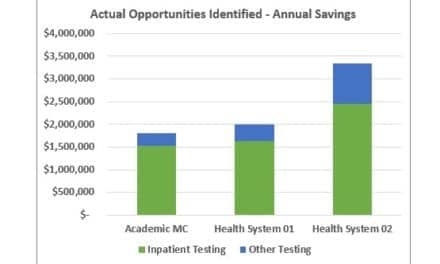
The newly available pediatric PGx solution and testing panel evaluates seven actionable genes to determine how a pediatric patient will uniquely respond to specific prescription medications, and provides actionable prescribing information for 24 drugs. The testing panel includes genes that can influence the metabolism of anticancer agents, antidepressants, cardiovascular and gastrointestinal drugs, and certain opioids, among others.
“FDA’s announcement earlier this year restricting use of all prescription medications containing codeine or tramadol in children under 12, and cautioning usage in 12- to 18-year-olds with specific medical conditions, underscores the importance and value of PGx testing to identify the likely efficacy or toxicity of a medication for pediatric patients,” says Houda Hachad, PharmD, MRes, chief science officer at TSI. “With growing evidence linking drug response to genetic variability, and with costs decreasing rapidly for an array of genomic tests—including the CYP2D6 genotype test for codeine toxicity—use of PGx testing is growing to inform pediatric prescribing and guide precise patient therapies.”
To guide clinical decisionmaking, TSI’s proprietary PGx knowledge base classifies and interprets raw genetic data from the pediatric PGx panel, generating a tailored, clinically actionable report with concise molecular intelligence and critical alerts regarding drug efficacy, toxicity, and known interactions. The report includes educational information about the maturation trajectories of the genes tested, and the indications for each drug by age group. The PGx results of a single genetic test can be used to help guide treatment decisions throughout the patient’s lifetime.
TSI and ITMI have also collaborated on pharmacogenetic testing services in support of Inova Health System’s MediMap program, initially launched in early 2016 as an optional service for all babies born at Inova Women’s Hospital. Among the more than 9,000 newborns tested as part of the program between February 2016 and September 2017, 97% received at least one actionable recommendation for drug dosing, and approximately 10% received a critical notice for codeine because of the patient’s rapid- or poor-metabolizer phenotype status.
For more information, visit Translational Software.





